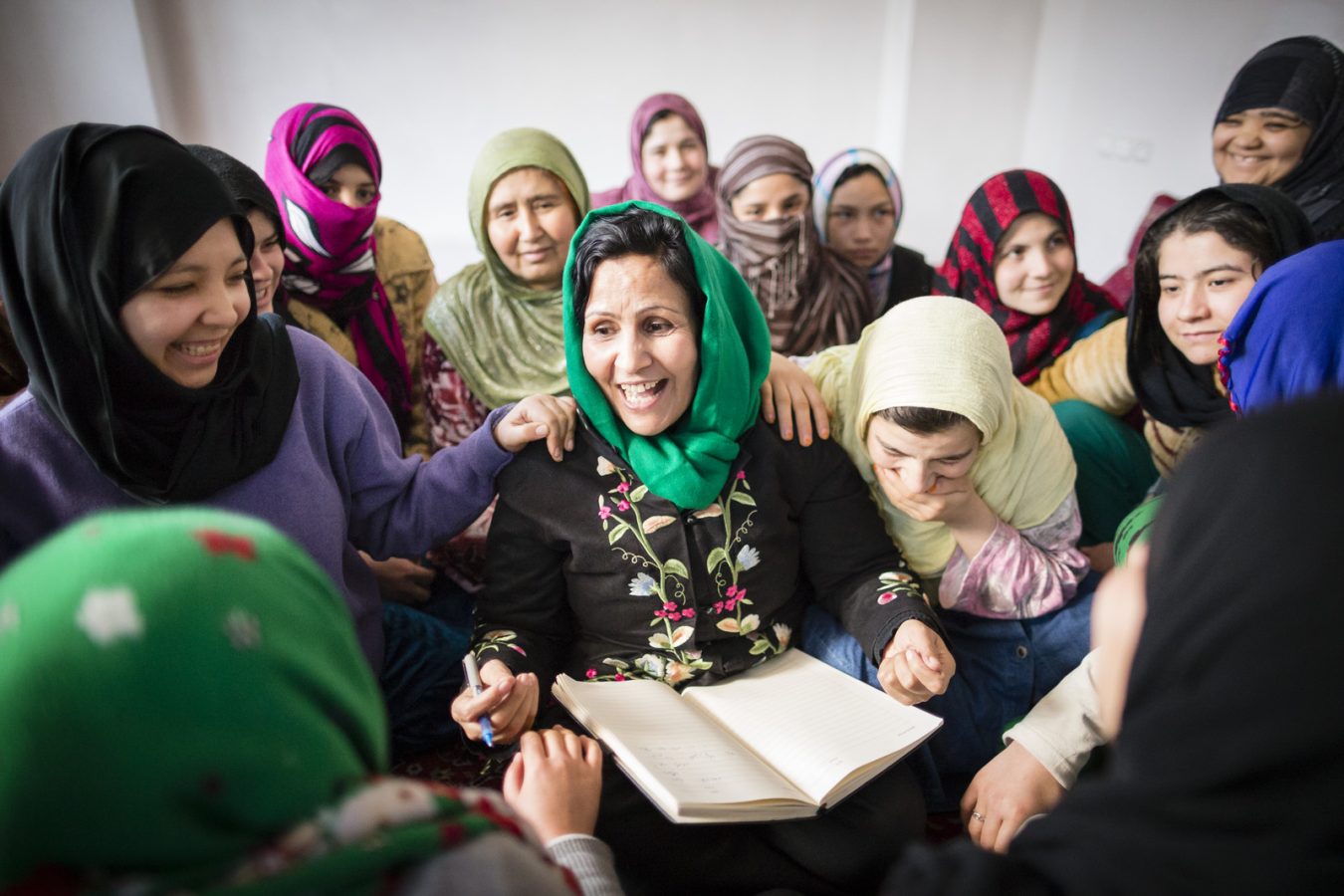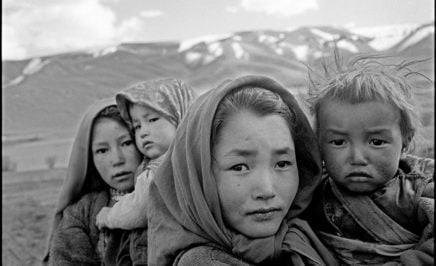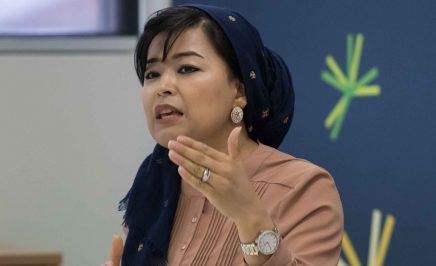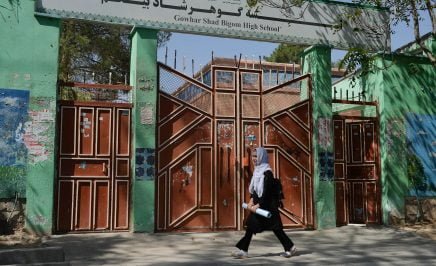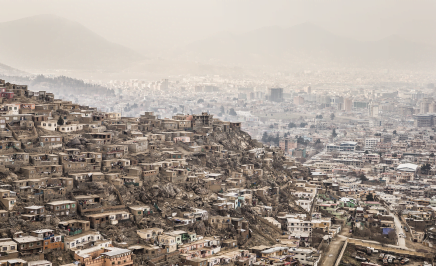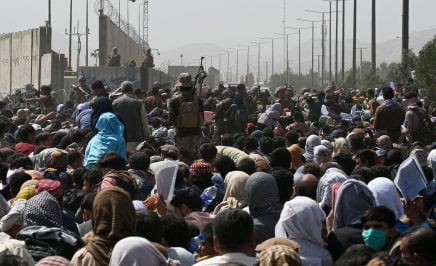On the occasion of the 16 Days of Activism against Gender-Based Violence 2021, Amnesty International has highlighted the achievements of 16 remarkable women from Afghanistan at a time when Afghans have had a whole spectrum of rights taken away from them almost overnight.
The 16 Days of Activism against Gender-Based Violence is an annual international campaign focused on raising awareness about violence against women. It begins 25 November and ends 10 December.
The Afghanistan crisis
The Taliban seizure of power on 15 August 2021 resulted in sweeping changes to the lives of all Afghans, but Afghan women and girls rights face particularly dire restrictions on their rights in their daily lives.
Except for healthcare workers and a few other isolated exemptions, Afghan women are not allowed to work and young girls over 12 are no longer allowed to attend school.
“In the first few days everyone was in shock. But then I saw brave women standing, demonstrating, raising their voices. That’s the new generation. They were listening. They are the revolution.”
Shukria Barakzai
Facing increased threats of gender-based violence and restrictions on their freedom of movement and expression, Women Human Rights Defenders in Afghanistan are standing up and challenging injustice.
Amnesty’s report serves as a reminder of how much Afghan women have achieved over the last 20 years despite political instability and conflict, and the heightened risks that they now face under the present regime.
The report features the stories of 16 notable Afghan women who discuss their feelings about the Taliban’s return, their hopes and fears for the future, and their recommendations to the international community on how to continue supporting women’s rights.
Here are 2 of the 16 stories.
Women in Afghanistan fighting for their future under Taliban rule
Manizha Ramizy, assistant professor at Kabul University
Manizha Ramizy is an academic and Women Human Rights Defender. Many female university lecturers were told not to come to work after the Taliban takeover, and many female university staff have also not been paid. Some private universities have set up gender segregated classrooms, but many public universities have decided that women cannot work until separate classes can be established for women and men.
“I was one of the younger university lecturers and taught Human Rights at Kabul University since 2017.”
“It was not easy to enter the academic world as a woman lecturer. The whole system was male dominated with very little support for women and girls who wanted to enter academia”
Manizha Ramizy
“I also faced discrimination but managed to work my way up.”
“At Kabul University, I was teaching in the Faculty of Psychology, Social Work, and Child Rights Protection studies. Once I entered academia, I worked hard to make changes in the curriculum such as including human rights as a subject taught at the university.”
“I wrote a book on human rights for social workers and that subject is now taught in all state universities across Afghanistan.”
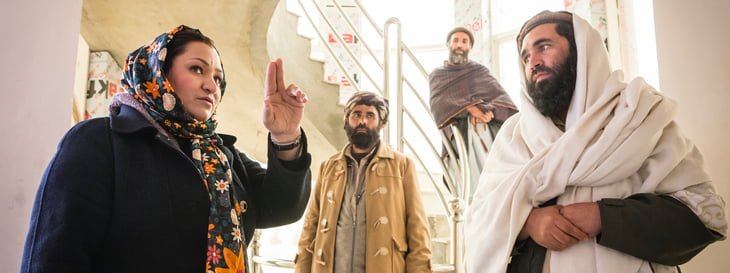
“Before the Taliban takeover, the biggest challenge for me was to convince the government to bring women into key positions and to make the appointments of women merit-based. In the past, the government tried to control women’s movements in Afghanistan – if they ensured that women were not united it was easier for them to control them.
Despite that, many women started creating movements across the country and raised their voices.
After the Taliban took control of Afghanistan in August 2021, they effectively shut the doors to women wanting to get higher education and none of my fellow female lecturers have been able to go to university to teach. The Taliban authorities have segregated women and men sections, and, in some provinces, young women are not even allowed to come to the universities.”
“The Taliban is systematically removing all the fundamental rights and freedoms for women and girls. Restrictions on freedom of movement and on social, economic, and political participation are the main obstacles for women and girls’ rights in Afghanistan.”
“The Taliban regime is creating restrictions and obstacles for women every day and we will not have any possibility of professional and technical development.”
Manizha Ramizy
“Furthermore, Taliban has used violence against women demonstrators, and they are viewing women simply as someone who should just give birth and spend time inside the home. Women who were supporting their families financially are suffering more than anyone else – barring women from exercising their economic rights including their right to work constitutes a human rights violation and gender-based discrimination against women.
I hope that not just the international community but also Afghans, particularly Afghan women and women across the globe, raise their voices at the international level to speak against the violence and discrimination we are facing.”
Zala Zazai, police officer in Khost province
Zala Zazai is a female police officer who served as the head of the Criminal Investigation department of Khost province, and later as an investigator of crimes against women. Afghan policewomen are at risk of retribution from those they previously arrested (many of whom were released during the chaos of the Taliban takeover) as well as from conservative family or community members who disapprove of their chosen profession.
“Since June 2020, I served as the first woman police officer in Khost province. It is one of the most insecure and conservative provinces in Afghanistan and I am proud of being able to do that. I have been working to investigate crimes against women and I will not take any credit for that as it was my job.
“As a police officer and as a woman, I did what I could to ensure that women who are victims of crime and abuse of any form are treated fairly and receive justice”
Zala Zazai
“There was a lot of opposition from within my own family about me joining the police force and I had to convince them a lot. After completing my education and as soon as I joined the police, I realised that other people too didn’t want to see a woman serving as a police officer.
This is a male-dominated field and women joining the police force are not deemed a “good fit”. Many people view women working in the military and police force in a bad way and they call us names because we are working in a male-dominated field.
The women in the police and military all fought hard against our families and society, as well our own colleagues. We overcame so many odds and challenges to ensure that women were part of the police and army, but then everything changed in August 2021.”
“Since the Taliban returned to power most women in the police were forced to stay home. No policewomen were able to come to work and many had to flee because of the high level of threats against them by the Taliban.
In recent days I have heard that the Taliban are calling women police to return to their work, but in reality, it is nothing but a trap. Some of the women police officers have received calls from the Taliban who are trying to find their whereabouts or threatening them. They are all in fear and despair.”
“At the time Afghanistan fell into the hands of the Taliban, I was luckily out of the country. But many women police officers who remain in the country have experienced psychological and physical violence. Women who are living under the Taliban are not even daring to leave their homes.
The international community must pressure the Taliban to ensure women’s rights and they must do everything to ensure that women are part of the new government. The Taliban cannot eliminate half of the population of Afghanistan.
Women will be and should be there. The Taliban have no choice but to include women and allow them to continue with their work and take an active part in social, economic and political life.”
Read the full report here for all the stories.
What needs to happen?
The international community, including Australia, should stand by women in Afghanistan and support women’s rights.
Amnesty is calling on the international community to:
- Use available leverage during negotiations with the Taliban authorities to address women and girls’ rights as a non- negotiable issue
- Engage with women human rights defenders and activists from Afghanistan to understand the ground realities and work with them to support women’s rights in Afghanistan
- Allocate funds for the implementation of programmes and projects on advancement of women’s rights in Afghanistan
Amnesty Australia has been advocating for a road to refuge, in the form of community sponsorship, for almost 4 years. The Afghanistan crisis highlights how our work is challenging injustice and could save lives. Learn more about our refugee rights and community sponsorship campaign here.
All around the world, including in Australia, women are denied their human rights on the basis of their sex and gender. Learn more about our women’s rights campaign here.
